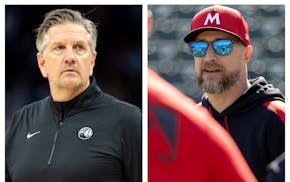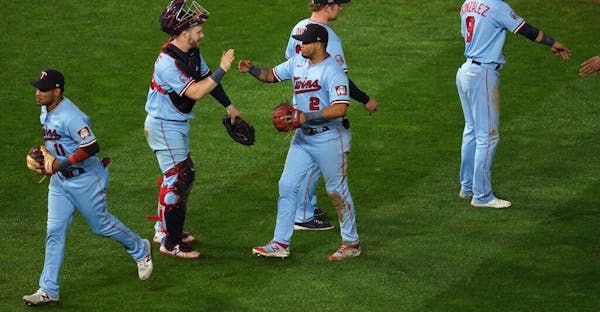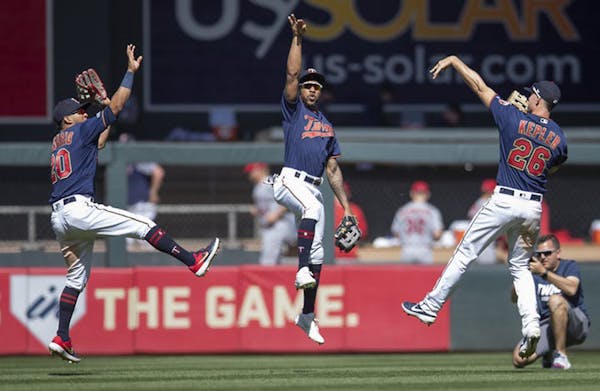Baseball will return in July, and as has been the case in every work stoppage in the game's history, many fans promise to remain angry that the owners and players didn't settle their negotiations earlier.
In any dispute, casting equal blame benefits the party that is more in the wrong.
The owners are counting on this.
To apportion equal blame for this mess is to ignore facts.
In March, the players agreed to play and be paid on a prorated, per-game basis.
For the next three months, the owners made a series of offers that would have paid the players less than what the owners originally agreed to.
The owners repackaged their offers to fool the public into thinking they were negotiating in good faith, but each offer was a version of this proposal:
"We know we agreed to give you a whole pie. Instead, we're going to give you half a pie, but we'll cut it into as many slices as you would like. How about we cut the half a pie into eight pieces? Eight pieces! How greedy do you have to be to turn down eight pieces of pie?''
In truth, the owners didn't want to play more than 60 games. If they had, they would have made a realistic offer sometime in the past three months. Instead, they slow-played the negotiations until imposing a 60-game schedule became more a matter of necessity than a matter of choice.
When fans get mad at baseball, they often attack the players. Owners are relatively faceless and it's difficult for the average human to comprehend what it takes to make a billion dollars.
Players, we get. You can view any successful big-leaguer as a winner of the DNA lottery, as someone who owns physical gifts that are not available to the rest of us. They're overpaid because they're playing a child's game. That's the easy, clichéd, position to take.
But if you're comparing players and owners, ask yourself this question:
Who cares more about the game?
The players know they have a limited time in uniform. For every rich star, there are dozens of players who get to spend only a brief time in the big-leagues, and whose income is largely determined by what they can make on low salaries in the minor leagues.
They cherish their time in uniform.
Owners? According to reports from reliable reporters, there was a handful who wanted to cancel this season.
For the owners, baseball is usually a hobby business, a high-yield investment that allows them access to a business much more interesting than the one in which they made their riches.
The most revealing comments during the negotiations came from three on the side of ownership: Cardinals CEO Bill DeWitt, Cubs Chairman Tom Ricketts and Diamondbacks executive Ken Kendrick.
Each cried poverty. None should be taken seriously.
Carl Pohlad bought the Twins for $36 million in 1984. The team is estimated to be worth more than $1 billion now, in part because of its publicly funded stadium.
Only one MLB team is publicly owned, meaning its finances are accessible. Atlanta, in 2019, had a player payroll of $144 million and made $438 million in revenues from ballpark operations, local broadcasting rights, national broadcasting rights and merchandise.
Sports ownership is lucrative. If not every day or every year, then over time.
You should also ask yourself why owners would want you to hate the players, when the owners also want you to buy those players' jerseys and cheer for them at the ballpark.
Players aren't sympathetic figures during any negotiations, and they proved to be stubborn this time around, and they turned down money to force the owners to impose a season so the players could retain the right to file a grievance.
If players were simply greedy, they would have taken the deal that offered the most money. Why didn't they? Because they believe the owners negotiated in bad faith.
Players are easy targets, but to expect them to ignore their own interests while negotiating is silly. So is thinking that the owners ever intended to play 100, or even 80, games.

Souhan: Will the Wolves trade for Kevin Durant? Should they?
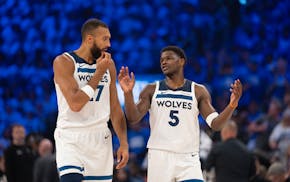
Souhan: If Edwards is a franchise player, he needs to act and play like it
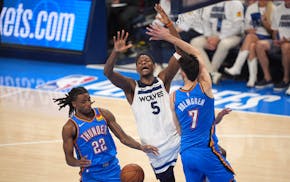
Souhan: Wolves' weak performance in Game 5 invites change, so don't let it shock you
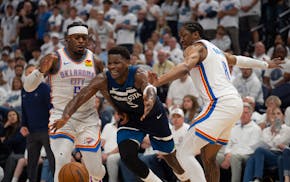
Souhan: Edwards and Randle flop in the Timberwolves' biggest game of the season
